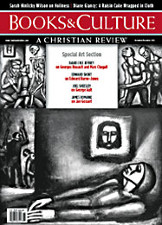Andrew Byers is deeply concerned for the Christian cynic. In Faith Without Illusions: Following Jesus as a Cynic-Saint (IVP), Byers admits to falling in and out of cynicism himself. He knows that it is a sickness that must be checked before it poisons the soul. Christian cynics become cynical, he says, because they have become disillusioned. While most see disillusionment as negative, Byers does a wonderful job explaining that disillusionment is “the dispersal of illusions” and can actually be a form of illumination. Those struggling with cynicism may feel convicted but never condemned as Byers lifts a prophetic voice to critique Christian cynics. The key is that the critique comes off as edifying: it shows cynics how to use their gifts of disillusionment and insight to better the church that left them feeling jaded in the first place.
The book is separated into two parts. The first addresses various illnesses rampant in the church that drive Christians to become cynical in the first place. While the list could be much longer, Byers focuses on Idealism, Religiosity, Experientialism, Anti-Intellectualism, and Cultural Irrelevance. These chapters are by far the easiest to relate to; most Christians—or at least most American Christians—can readily identify these illnesses as being endemic in either their present church or a church they have attended in the past. Byers sprinkles each chapter with anecdotes from his life and fills the book with both humor and humility. It would be easy to side with the cynics, merely railing against churches that display these illnesses. Instead, Byers has sympathy for the churches bedeviled by these pathologies—and he contends that the reader should as well.
The second part of the book demonstrates different ways to respond constructively: the way of the Prophet, the Sage, the Tragic Poet, and of Christ himself. This section feels more structured and less personable, though it is without a doubt the more important section because Byers lays out biblical examples of those who embody each response. This is the edifying portion of the book for cynics, as they learn that they can play a part in eliminating the illnesses of the church. As should be expected, one of the most convicting lines of the book comes in the chapter “The Way of Jesus.” After Byers lays out all the reasons Jesus had to become a bitter cynic, he asks, “Can anyone justify being a cynic if Jesus was not a cynic?”
The answer is obviously “no,” and it leaves honest Christian cynics with no escape route. Byers is right in noting that there is a subculture in Christianity whose members carefully tend and nurture their cynicism: it is filled with cynics complaining to other cynics and even praising one another for their cynicism. Byers bluntly calls out this activity as wrong, but he does not stop there: he challenges Christian cynics with words that come as a fresh wind blowing away a stench, leaving those behind in a better place.
The underlying theme of the book is “hopeful realism,” a term Byers got from his wife. Byers does not want the church to be full of naïve idealists, nor does he want it full of pessimistic cynics. Instead, he advocates for hopeful realism, a stance that sees the world and the church for what it is and yet hopes that we can, with God’s help, make it better. He draws this hope from the Resurrection, from the already-not-yet view that there is an overlapping of ages, that we are waiting for the coming age when Jesus makes all things new while simultaneously believing he has already begun doing this work in Christians and his church. It is a powerful truth, one that has been expressed many times before but bears repeating nonetheless. And Byers says it in a new way to a section of the church that desperately needs to hear the message.
—Aaron Wilkinson
Copyright © 2012 by the author or Christianity Today/Books & Culture magazine.Click here for reprint information on Books & Culture.










